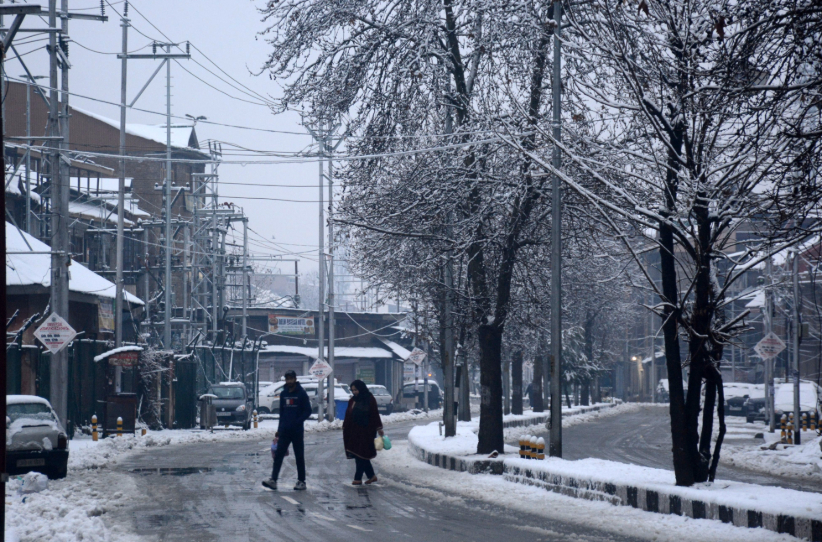Saudi Arabia has often been touted as the springboard of support for the Pakistani political establishment. This Gulf Arab monarchy has for many decades opened its financial largesse to sustain Islamabad’s declining economy. This aid has been critical in helping the country address its economic woes amidst political instability, corruption, and never-ending extremism. Saudi credit has helped Pakistan finance its imports, service its debts, meet its other financial obligations, and, importantly, maintain its foreign policy goals. Were it not for the credit lines extended by Riyadh to Islamabad, Pakistan’s economy would have tanked long ago.
Some of Saudi Arabia’s generous aid instalments to bail out Pakistan and revive its economy in recent years include extending an $8bn financial cushion to revive Pakistan’s economy in May 2022 as the country looked at the cusp of default. Earlier, the Kingdom had infused the Pakistani economy with $1.5bn in 2013, $6bn in 2018 (including $3bn “as balance of payment support” and $3 bn in deferred oil payments), and $3bn in 2021. However, of late, multiple reports suggest that there has been a significant shift in this trend, with many Gulf Arab governments not being supportive and forthcoming, unlike in the past in making generous financial offerings to Pakistan, accusing its militablishment of chronic corruption and are expressing their surprise at its unwillingness to address this issue with the seriousness that is required.
A report in Middle East Eye (MEE) on 18 March 2023 claimed that Saudi Arabia has declined to offer any more financial aid that included interest-free loans and bailouts, to Pakistan. Even as Pakistan battles an economic emergency and requires significant US dollar inflows to avoid defaulting on international loan repayments over the next three and a half years, what shocked its militablishment more was the rebuff to the Pakistani Army Chief, who has otherwise been perceived as a defacto guarantor of the continuity in reciprocatory relations by the Gulf governments.
This is not just a rebuff but suggests how Saudis have stopped viewing Pakistan through the prism of a brotherly Muslim country whose existence and survival remained a matter of faith for the Muslim world. Instead, Pakistan is being viewed increasingly as a liability and a restraining factor in realising Saudi Arabia’s economic goals. Therefore, it is useful to ask: Does it signify a major shift in Riyadh’s engagements with Islamabad?
Background
Pakistan and Saudi Arabia have largely maintained strong relations for decades, which starddle political, strategic, military and economic spheres. For long, it acted as the regional balancing power against Iran. Their relations accrued military and intelligence significance during the 1960s as the Kingdom navigated the rough waters of Nasserite pan-Arabism. Following the 1967 military bilateral cooperation agreement, Pakistan extended its extensive military support to Saudi Arabia, including air force training and maintenance, troop deployment for security duties, and joint military exercises.
Interestingly, the Pakistan Army deployed a good number of its forces to secure the Kingdom’s borders during the 1970s amid the rising Iranian threat following the dethroning of the Iranian Shah regime as a consequence of the revolution. Islamabad reinforced Saudi defences by providing another brigade during the Iraqi invasion of Kuwait to secure its borders. As such, two brigade-level Pakistani Army personnel have remained stationed in the Tabuk and Khamis regions of the Kingdom ever since. The highlight of this strategic partnership has been their ‘unacknowledged’ nuclear understanding wherein Islamabad would extend its deterrence arc over Riyadh should the Saudis ever require it.
In return, apart from the generous financial assistance, including large oil subsidies, Saudi Arabia offered its unhindered backing to Pakistan over its strategic interests, such as support to Pakistan’s stance on Kashmir. Pakistan also remained an important factor in Riyadh’s engagements with India. It looks like Islamabad has lost substantial diplomatic capital it had carefully cultivated over the decades in the name of Islamic solidarity.
Pakistan’s Current Economic Woes
Pakistan remains at the risk of defaulting on its massive external debt obligations. Its foreign exchange reserves are running dangerously low, making it impossible to finance even a month’s imports. As of December 2022, its debt and other liabilities were estimated at around $126.3 billion, with a mere $3 billion in foreign exchange reserves. Of this, the Pakistani government owes nearly three-fourths (77 per cent) of this debt, which is equivalent to $97.5 billion, to different external creditors. Even as Shehbaz Sharif’s government struggles to finance its imports, service its debts, and meet its other financial obligations, the continuing depreciation of the Pakistani rupee (PKR) against the US dollar is only making it harder to meet its monetary obligations.
The country’s inflation currently stands at 36.4% (April 2023), the highest since December 1973. Likewise, its unemployment rate has risen to to 6.5 percent in December 2022, and 31 percent of it are graduate. These circumstances have put the Pakistani government in check to take drastic measures to stabilise the economy.
Even as the militablishment has engaged in multiple rounds of difficult negotiations with the International Monetary Fund (IMF) since 2019 for a comprehensive bailout package (13th since the 1980s), which remains elusive as of now, the Pakistani government has turned to Saudi Arabia and other traditional allies, including the Gulf Arab monarchies, for support. Though Riyadh extended a $3 billion credit line in 2021, supplemented by a further pledge of $6 Bn in May 2022, the overall response has been lukewarm. Should it fail to secure a dollar infusion into its economy, it would be harder for Pakistan to obtain further international loans as the country’s credit rating has been effectively downgraded to the lowest levels.









